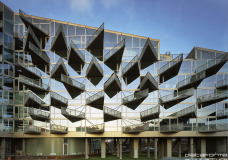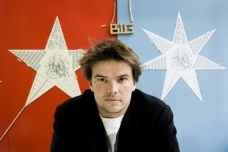
newspaper
news
He advocates for architecture to be taught in public schools alongside science and mathematics. He has broken Denmark’s good-old boy network challenging a constipated establishment to think outside a boring box. He is challenging Europe’s mundane status quo. He is also a leading force in Europe’s Green Architecture movement producing astonishing and exemplary works of sustainable design. He has inspired Europe’s emerging young generation—of which he is apart—to push for new architecture beyond the pale fringe.
At age 38, Bjarke Ingels has already had an astonishing career and is only starting to shape a new contemporary direction in today’s European architecture.
For these reasons and numerous others, The European Centre for Architecture Art Design and Urban Studies and The Chicago Athenaeum: Museum of Architecture and Design have named Bjarke Ingels as the recipient for the 2010 European Prize for Architecture.
The European Architecture Prize, established as a collaborative effort between The European Center for Architecture Art Design and Urban Studies and The Chicago Athenaeum, is to be formally presented to Bjarke Ingels at “The City and The World: Madrid Symposium” November 4-7, 2010.
On Friday, November 5, at a Gala Diner and special Award’s Ceremony, together with Colegio Oficial de Arquitecturos de Madrid, Madrid’s Mayor Alberto Ruiz-Gallardón Jiménez will officially present Mr. Ingels with the lauris nobilis—symbolic of the European Prize.
Mr. Ingels will give a lecture preceding the dinner at 6:00PM at Centro de Turismo Colón, Plaza Colón, Madrid.
“We are delighted to bring to Europe and to the world’s attention this remarkable young Danish architect,” states Christian K. Narkiewicz-Laine, Museum President, The Chicago Athenaeum. “He has championed a bold, fresh, and progressive atmosphere in today’s Europe and he will certainly set the stage for new ideas, a new provocative approach to design and urbanism, as well as feed the flames for a new philosophical debate in years to come.”
For this year’s Prize, The European Centre received nominations from professional organizations and societies, museums of architecture, organizations and institutions throughout Europe. Members of The European Centre’s International Advisory Committee served as the jury for the Prize. (Nominations for 2011 are due by August 1, 2011. See The European Center’s website at www.europeanarch.eu for more details.)



